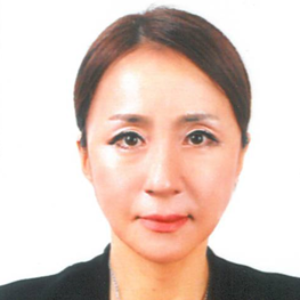Title : Factors affecting life satisfaction among people with physical disabilities during COVID-19: Observational evidence from a Korean cohort study
Abstract:
Background: COVID-19 has reduced life satisfaction among people with disabilities more so than among the general population. To address this disparity, there is a need to identify the factors influencing life satisfaction among people with physical disabilities and provide the support they require. No prior studies have investigated the determinants of life satisfaction among people with physical disabilities during the COVID-19 pandemic.
Objective: We aimed to determine the factors influencing the life satisfaction of people with physical disabilities during the COVID-19 pandemic, considering demographics, disability-related characteristics, health behaviors, and psychosocial characteristics.
Methods: We used cross-sectional data from 301 respondents of the 2021/2022 survey of the Korean Health Cohort Study for People with Physical Disabilities. Descriptive statistics were used to analyze the characteristics of the research subjects, and chi-square tests and multiple logistic regression were used to identify the determinants of life satisfaction.
Results: Among sociodemographic variables, occupation had a strong association with life satisfaction. Significant health behavior variables included daily regular meals, weight control effort, and chronic pain. All psychosocial characteristics (perceived stress, depression, suicidal ideation, cognitive function assessment, subjective health status, family satisfaction, income satisfaction) were strongly associated with life satisfaction. Results of analysis of factors affecting life, unemployment, lack of regular exercise, elevated stress, suicidal thoughts, and dissatisfaction with family contributed to increased life dissatisfaction.
Conclusions: Strengthen economic support that considers the specific characteristics of people with disabilities and social access through community integration services that encourage participation in social activities should be prioritized.
Keywords: COVID-19, people with physical disability, life satisfaction, Korea
Audience Take Away:
- This study is the first of its kind to investigate the factors affecting the life satisfaction of people with physical disabilities in Korea against the backdrop of COVID-19. The association with life satisfaction and the influencing factors affecting life satisfaction were examined in detail by sociodemographic characteristics, disability characteristics, health behavior, and psychosocial characteristics of people with physical disabilities, using a total of 36 variables.
- This study’s significance lies in providing evidence to support innovative, sustainable mental health interventions, encompassing socioeconomic determinants, to enhance the life satisfaction of people with physical disabilities. Targeted support strategies were suggested based on the findings.
- The results of our analysis of the factors affecting life satisfaction provide evidence that being unemployed, not exercising regularly, perceiving increased stress, having suicidal ideation, and being dissatisfied with family increase life dissatisfaction. By contrast, factors related to personal characteristics, such as gender, education level, and marital status, had no significant association with life satisfaction, supporting the findings of previous research.
- Since loneliness and social isolation are highly prevalent in people with disabilities and are risk factors for reduced well-being and depression, the positive effects of rewarding work can reduce feelings of isolation and loneliness and lead to income satisfaction, ultimately improving the life satisfaction of people with physical disabilities
- Our results suggest that interventions supporting the quality of life of people with disabilities and that of their families should be integrated rather than treated separately. Moreover, it is necessary to conduct proactive interventions before a crisis occurs; these can include providing psycho-emotional support counseling or community linkage services through regular quality-of-life checks for the vulnerable families of people with disabilities.




